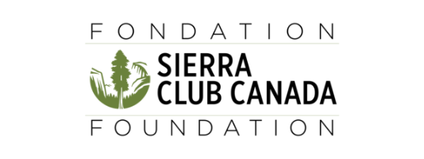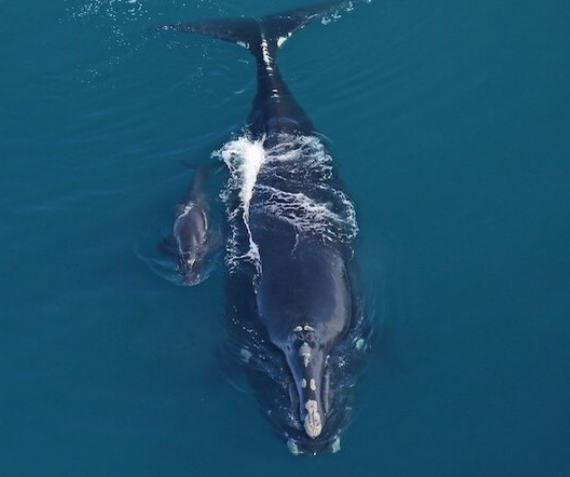
February 27, 2020
OTTAWA - New measures announced today by Canada's Minister of Fisheries and Oceans and the Canadian Coast Guard Bernadette Jordan and Transport Minister Marc Garneau put much needed protections in place in advance of the spring return of North Atlantic right whales in Canada's waters, according to Sierra Club Canada Foundation, but bigger picture thinking is needed to protect the critically endangered species.
"We welcome these measures and the provision of acoustic monitoring to better detect whales, but more is needed to protect these whales and their home in the Gulf of St. Lawrence and ensure we see no deaths in 2020," according to Sierra Club Canada Foundation National Programs Director, Gretchen Fitzgerald. "We want to see a commitment to employing ropeless gear across the board, all slow-down zones should to be permanent and compulsory, and oil and gas activities need to be banned in the entire Gulf in order for these whales to be safe in the long-term."
Some of the regulatory and management measures needed to make Canada's waters truly whale safe include:
- a commitment to regulate seismic testing that includes no-go buffer zones around right whale habitat and across their migratory path
- emergency response measures that will kick in if a single right whale death occurs
- timelines and commitments to adopt 100% ropeless gear
- the spring and fall voluntary slow-down zone in Cabot Strait area needs to be compulsory for the entire time whales are present in the Gulf
- the slow-down zone east of Anticosti should apply the entire time right whales are present in the Gulf, not just in May and June
- commitment for when the Shediac Valley shipping restriction zone will be put in place
- increased funding for right whale monitoring and marine mammal rescue so we know measures are as effective as possible
- a long-term commitment for restoration of the imperiled Gulf of St. Lawrence ecosystem.
"Ten right whale calves have been born this year, one of which - just hours after birth - was struck by propellers on either side of her head and mouth, impairing her ability to suckle. With nine deaths in Canadian waters in the summer of 2019, these whales are barely hanging in there. What we need to see, instead, is a commitment that Canada will achieve zero mortalities in order to allow the population to grow beyond its precarious state."
Media Contact:

